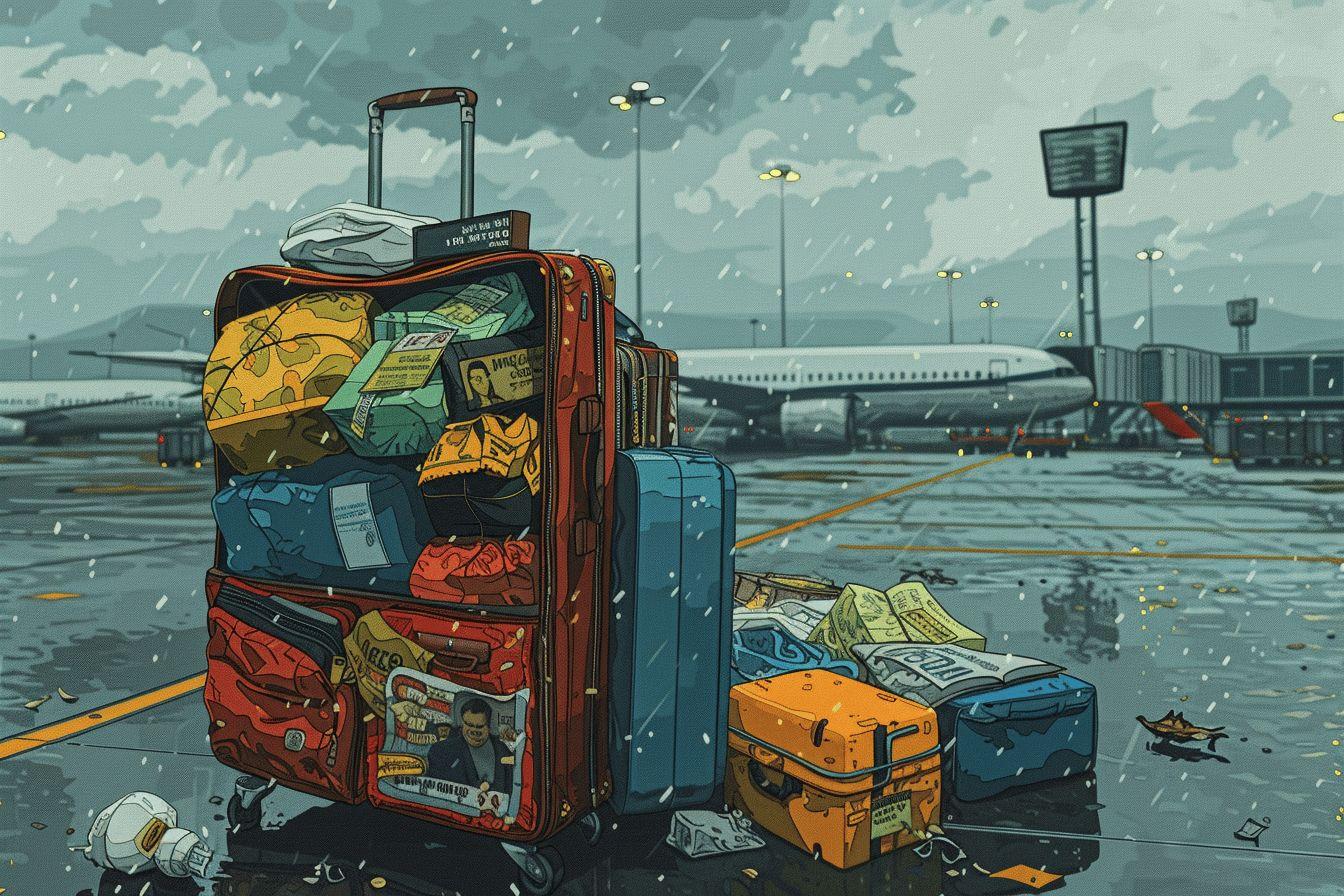Navigating through the twists and turns of customs regulations requires a deep understanding. The allowed amounts at border crossings are often a source of misunderstanding and errors. The penalties incurred can prove significant, impacting your finances and your peace of mind. Each country establishes distinct thresholds, strategically designed to prevent abuse and promote legitimate trade. Knowing the financial limitations is essential for any traveler wishing to avoid inconveniences upon their return. Specific regulations govern goods, from alcoholic beverages to luxury products, thereby creating the need for heightened vigilance.
Key Point
Allowed amounts: In Europe, you must declare any sum exceeding 10,000 euros at customs.
Customs allowances: Depending on the type of goods, tax allowances in quantities and values may apply.
Alcohol and tobacco: There are limits to the amount you can bring back depending on the country of origin.
Valuable items: Declare any item of significant value, such as jewelry and electronic equipment.
Country of origin: The rules vary depending on whether you are returning from an European Union country or a third country.
Customs penalties: Transporting prohibited goods or in excessive quantities may lead to penalties.
Required documents: Prepare the documents needed to facilitate your passage through customs.
Evolving rules: Customs regulations change, stay informed about new regulations.
The allowed amounts at border crossings #
Crossing borders involves complying with specific customs regulations. Each country imposes limits on the amounts of cash and goods that can be brought back. These penalties aim to prevent smuggling and money laundering.
Limits concerning cash #
When traveling abroad, the transportation of sums of money must comply with strict standards. In the European Union, anyone bringing or taking out an amount equal to or greater than 10,000 euros must declare its existence to customs authorities. This rule includes cash as well as checks and money orders.
À lire Beauty tips for taking care of your skin while flying
Not only do authorities check the amounts, but they also conduct investigations in cases of non-declaration. Fines and penalties can be imposed for any non-compliance. Your vigilance is therefore essential for traveling with peace of mind.
Customs allowances on goods #
When returning from a trip abroad, customs allowances apply. They correspond to limit amounts beyond which goods must be declared. These allowances vary depending on the country of origin and the nature of the goods.
Purchases made within the European Union
Travelers coming from an EU member country benefit from more generous allowances. Generally, each person can bring back up to 430 euros of goods without declaring. Specific products, such as alcohol and tobacco, have precise quantity limits that should be known before departure.
Purchases made outside the European Union
For purchases made outside EU member countries, the allowance is often more restrictive. A maximum amount of 150 euros applies to the goods acquired. In case of exceeding this, you will have to pay customs duties on the entire amount at customs.
À lire Understanding how the State Department’s travel advisory system works
The products not to bring back #
Certain items are strictly prohibited from transport by air or land. Customs control focuses particularly on goods such as drugs, weapons, and other prohibited items. Make sure to check specific regulations in each country to avoid any inconveniences.
Rules on alcohol and tobacco #
The transport of alcohol and tobacco is subject to specific rules. For example, a traveler may bring a certain volume of alcoholic beverages and specified quantities of tobacco. Each type of alcohol, such as wine or rum, has its own legislation. Online resources can help you find out about the allowed volumes, such as the quantities of rum you can bring back from Martinique.
For more tips on alcohol quantities, check this link about rum in Martinique.
Consequences of non-compliance #
Failing to comply with customs standards can lead to unfortunate consequences. Fines can amount to much higher values than the worth of undeclared items or money. Always ensure to check the imposed limits to avoid any inconveniences. A successful trip relies on good preparation, both financially and logistically.
À lire SNCF Strike on May 8: Practical Guide to Getting Your Train Ticket Refund
To learn more about the volume of wine to bring back from France and the regulations, visit this link: wine in France.


